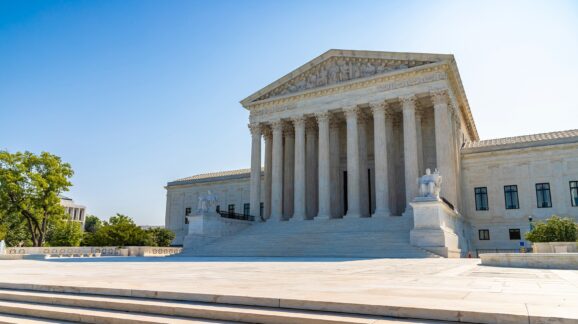Supreme Court hears challenge to regulator deference: CEI analysis

Photo Credit: Getty
Today the U.S. Supreme Court heard oral argument in a case that could upend deference judges give to regulators over citizens. Competitive Enterprise Institute attorneys highlight pivotal comments and questions from today’s oral argument in Loper Bright and Relentless. CEI filed an amicus brief in this case.
Statement by CEI General Counsel Dan Greenberg:
“The Chevron doctrine was judicially created in the 1980s. At oral argument today, several justices noted that the logic of Chevron is contrary to the Administrative Procedure Act, which requires that ‘the reviewing court shall decide all relevant questions of law.’ Chevron transfers interpretive authority away from federal judges to unelected federal appointees. The Constitution requires judges, not bureaucrats, to have the last word when the law as written is ambiguous.”
CEI attorney Devin Watkins:
“As Justice Gorsuch explained at oral argument, Chevron is responsible for massive swings in statutory meaning every 4 years when a new President is elected, because it regularly assigns interpretive authority to a new crowd of political appointees. When Solicitor General Prelogar suggested that overturning Chevron would transfer policy decisions to federal judges, Justice Alito pushed back. On the contrary, Alito asserted, the interpretation of statutes cannot be understood as involving policy questions but, rather, as involving questions of law that judges must handle under our constitutional structure.
“The Supreme Court should end Chevron to restore the American public’s representatives in Congress as the only source of new law.”
Related:
Agencies Are Limited in Which Congressional Power They Can Exercise
New Jersey fishermen challenge Chevron deference
Activist securities regulators should worry as Supreme Court revisits Chevron doctrine